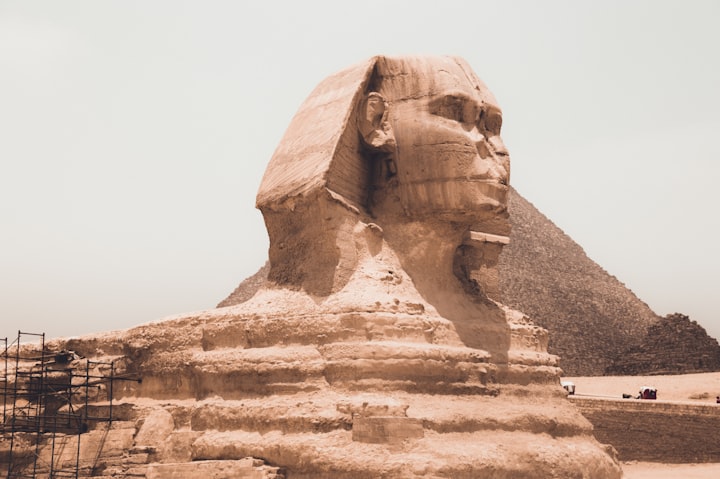History Of Egypt
The Ancient and Rich History of Egypt

Introduction:
Situated on the northeastern corner of Africa, Egypt is a country with a deep and fascinating history that spans over thousands of years. Its centralized location between Africa, Asia, and Europe has made it a significant crossroads for trade and cultural exchange since ancient times. From the rise of the pharaohs to the conquest of Alexander the Great and the subsequent rule of the Greeks, Romans, and Arabs, Egypt has experienced profound transformations that have shaped its identity. This essay aims to provide an overview of the history of Egypt, highlighting its major ancient civilizations, social and political structures, artistic achievements, and religious practices.
Ancient Egypt: The Land of Pharaohs (c. 3100 BCE – 30 BCE):
The history of Egypt begins with the formation of the first unified state under the pharaoh Narmer (also known as Menes) around 3100 BCE. This marked the beginning of the Old Kingdom, a period characterized by the construction of impressive monuments such as the pyramids of Giza. The pharaohs exercised absolute authority and were regarded as divine beings. They governed through a highly bureaucratic system and oversaw various administrative divisions known as nomes.
One of Egypt's most famous pharaohs was Ramses II, who reigned during the New Kingdom (1550 BCE – 1069 BCE). Under his rule, Egypt experienced a period of great prosperity and expansion, with numerous military conquests and the construction of massive temples and monuments. However, the decline of the New Kingdom led to a series of invasions, including those by the Kushites and Assyrians, ultimately resulting in the conquest of Egypt by the Persians in 525 BCE.
The Greek and Roman Eras: Cultural Confluences (332 BCE – 395 CE):
The conquest of Egypt by Alexander the Great in 332 BCE marked the beginning of Hellenistic rule, a period of significant cultural exchange between the Greeks and the Egyptians. During this time, Greek philosophy, art, and science had a profound influence on Egyptian society. The city of Alexandria became a major center of intellectual and cultural life, housing the famous Library of Alexandria, which was a repository of knowledge from across the ancient world.
Egypt eventually became a province of the Roman Empire in 30 BCE after the death of Cleopatra VII. The Romans introduced the worship of their own gods in conjunction with the traditional Egyptian deities. The period of Roman rule brought significant urban development, such as the construction of temples and aqueducts. Eventually, the spread of Christianity throughout the Roman Empire significantly impacted Egyptian society, leading to the establishment of monastic communities and the rise of Coptic Christianity.
Egypt under Islamic Rule: A Mosaic of Cultures (642 CE – Present):
The Arab conquest of Egypt in 642 CE marked a turning point in the country's history. The Arab rulers brought Islam to Egypt and gradually replaced the Coptic Christian majority, although Christianity continued to be practiced. Over time, Egypt developed into one of the major centers of Islamic civilization, producing renowned scholars, theologians, and philosophers.
The Fatimid Dynasty, which ruled Egypt from the 10th to the 12th centuries, played a crucial role in the development of the Ismaili branch of Shia Islam and established Cairo as its capital. The Mamluk Sultanate, which originated from Turkish slave soldiers, emerged as the dominant power in Egypt in the 13th century. The Mamluks built grand structures like Cairo's Citadel, transforming the city into a cultural and economic hub.
Egypt became part of the Ottoman Empire in 1517, but its control over Egypt was often nominal due to the influence of powerful Mamluk rulers. In the early 19th century, Egypt experienced a series of reforms under the rule of Muhammad Ali, who modernized the military, agriculture, and industry. The completion of the Suez Canal in 1869 brought increased European influence and transformed Egypt into a vital transportation hub.
Conclusion:
From the grandeur of the ancient pharaohs to the cultural exchange during the Hellenistic period and the subsequent rise of Islamic civilizations, Egypt's history is a testament to the diverse interactions and influences that have shaped its identity over millennia. The country's rich heritage extends beyond its ancient ruins, encompassing its art, architecture, religion, and social structures. Understanding Egypt's past is crucial to appreciate its contemporary society and appreciate the significant contributions this land has made to human civilization.
Citations:
1. Wilkinson, T. A. H. (2010). The Rise and Fall of Ancient Egypt. Profile Books.
2. Redford, D. B. (2003). Egypt, Canaan, and Israel in Ancient Times. Princeton University Press.
3. Shaw, I. (2002). The Oxford History of Ancient Egypt. Oxford University Press.
About the Creator
Mohammad Imran
✍️ Imran 🌟 Passionate content creator
📺 Sharing captivating stories and insightful perspectives
📝 Words that inspire and entertain
💡Join me on this creative journey! 🌍✨






Comments
There are no comments for this story
Be the first to respond and start the conversation.